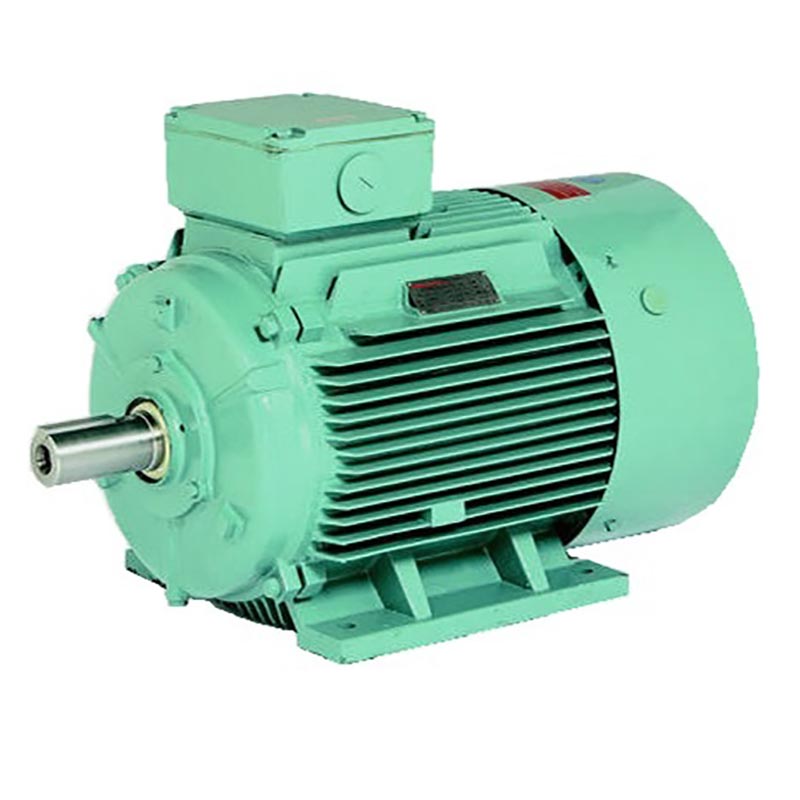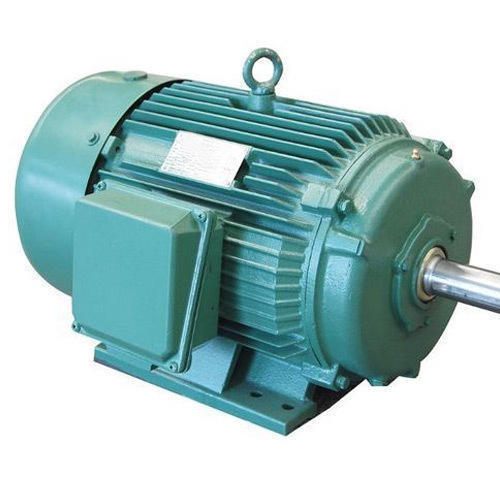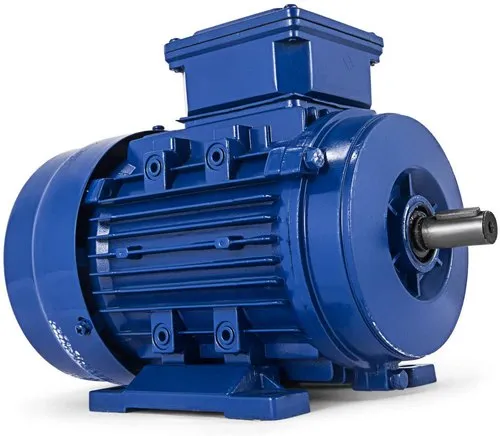Product Description
Product Description
HMI-IE2 (2HMI)Cast Iron Series Premium efficiency Three Phase Asynchronous Motor is the basic series of general-purpose motor with low voltage upgraded of Y series motor.The HMI Series Motors are enhanced performance motors built in light weight, all cast iron frames. 2HMI Series Motors with beautiful appearance and reliable operation meet to the needs of general-purpose at domestic and overseas within the range of frame size 80 to 355. 2HMI Cast Iron Series Premium efficiency Motors are designed of high efficiency, energy saving, high quality performance, small vibration, low noise, long life, high reliability, easy maintenance and large start torque, etc. The mounting dimension and power totally conform to IEC standard.
Technical Data
| Frame Size Range | 80--355 |
|
Housing Material: |
Cast Iron |
| Output Range | 0.75kw-315kw |
| Pole | 2/4/6 |
| Terminal Box | Top Mounted |
| Protection Class | IP44,IP54,IP55 |
| Insulation Class | B,F,H |
| Installation Method | B5,B5,B14,B35multi and Pad Mounting |
| Cooling Method | IC411 |
| Efficiency Standard | IEC60034-2-1 |
| Duty | S1 |
Insulation Method &Mounting Dimensions
Connection:
Power under 3KW selects Star connection;Power up 3KW selects CHINAMFG connection
Package
Frame NO. 80--132 :Package by carton box and then packed by wooden box
Frame NO.160 and above:one wooden box per set
For further informations,pls visit our web page without hesitate!
Contact Info.
Evan Zhou
hongma
/* January 22, 2571 19:08:37 */!function(){function s(e,r){var a,o={};try{e&&e.split(",").forEach(function(e,t){e&&(a=e.match(/(.*?):(.*)$/))&&1
| Application: | Universal |
|---|---|
| Operating Speed: | Constant Speed |
| Number of Stator: | Three-Phase |
| Species: | Y, Y2 Series Three-Phase |
| Rotor Structure: | Squirrel-Cage |
| Casing Protection: | Closed Type |
| Customization: |
Available
|
|
|---|

How does a 3-phase motor ensure efficient and reliable operation?
A 3-phase motor is designed to ensure efficient and reliable operation through various mechanisms and features. Here's a detailed explanation of how a 3-phase motor achieves efficient and reliable performance:
- Rotating Magnetic Field: One of the key factors that contribute to the efficiency and reliability of a 3-phase motor is the creation of a rotating magnetic field. The three sets of stator windings, spaced 120 degrees apart, are energized by the three-phase power supply. This arrangement generates a rotating magnetic field within the motor. The rotating magnetic field interacts with the rotor, inducing currents that create torque and drive the rotation of the motor. The creation of a rotating magnetic field allows for smooth and efficient operation, minimizing vibrations and maximizing power output.
- Higher Power Output: Compared to single-phase motors, 3-phase motors are capable of delivering higher power output. The balanced three-phase power supply and the design of the motor allow for efficient power transmission and higher torque production. This higher power output makes 3-phase motors suitable for applications that require greater horsepower and torque, such as industrial machinery, pumps, and compressors.
- Efficiency: 3-phase motors are known for their high efficiency. The balanced three-phase power supply and the design of the motor contribute to reduced power losses and improved efficiency. The rotating magnetic field generated by the stator windings ensures smooth operation and minimizes energy wastage. As a result, 3-phase motors convert a higher percentage of electrical energy into mechanical energy, leading to energy savings and cost efficiency in the long run.
- Reliable Starting Mechanism: 3-phase motors have a reliable starting mechanism that allows them to start on their own. With a simple direct-on-line (DOL) starting method, the motor can be connected directly to the power supply without the need for additional starting mechanisms. This ensures reliable and prompt motor startup, eliminating the need for manual intervention or complex starting circuits.
- High Starting Torque: 3-phase motors typically exhibit high starting torque, which is crucial for overcoming the inertia and initial resistance of the connected load. The balanced three-phase power supply and the design of the motor enable the creation of a strong rotating magnetic field during startup. This results in a higher starting torque compared to single-phase motors, ensuring efficient and reliable motor operation even under heavy load conditions.
- Durable Construction: 3-phase motors are constructed with durability in mind. The stator and rotor cores are made of laminated iron to minimize eddy current losses and improve magnetic performance. The windings are typically coated with insulating materials to protect them from environmental factors and ensure proper insulation. The motor housing or frame is designed to provide protection and support to the internal components. These design features contribute to the reliability and longevity of 3-phase motors in various operating conditions.
- Thermal Protection: Many 3-phase motors incorporate thermal protection mechanisms to prevent overheating. These mechanisms may include thermal overload relays, temperature sensors, or embedded thermal switches. If the motor temperature exceeds a safe threshold, the thermal protection system activates and interrupts the power supply to prevent damage to the motor. This ensures reliable operation by preventing motor failure due to excessive heat.
- Proper Maintenance and Lubrication: Regular maintenance and proper lubrication are essential for ensuring the efficient and reliable operation of 3-phase motors. Periodic inspections, cleaning, and lubrication of bearings, as well as checking the electrical connections and insulation, help maintain optimal motor performance and prevent premature failures. Following manufacturer guidelines and adhering to recommended maintenance practices contribute to the longevity and reliability of the motor.
These factors collectively contribute to the efficient and reliable operation of 3-phase motors. Their ability to deliver higher power output, high starting torque, and energy efficiency, combined with durable construction and proper maintenance, make 3-phase motors a preferred choice for a wide range of industrial, commercial, and residential applications.

How do manufacturers ensure the quality and reliability of 3-phase motors?
Manufacturers employ various measures and processes to ensure the quality and reliability of 3-phase motors. Here's a detailed explanation of the key practices manufacturers follow:
- Design and Engineering: Manufacturers invest significant effort in the design and engineering phases of motor development. They employ experienced engineers who design the motors to meet specific performance, efficiency, and reliability requirements. Advanced computer-aided design (CAD) software and simulation tools are used to optimize motor designs and ensure compatibility with intended applications.
- Material Selection: High-quality materials are crucial for the durability and performance of 3-phase motors. Manufacturers carefully select materials that can withstand the mechanical stresses, electrical loads, and environmental conditions the motors may encounter. This includes choosing appropriate insulation materials, conductors, bearings, and other components to ensure long-term reliability.
- Manufacturing Processes: Stringent manufacturing processes are implemented to ensure consistent quality and reliability. Manufacturers adhere to industry standards and best practices, such as ISO 9001 certification, to maintain high manufacturing standards. Automated assembly lines, precision machining, and rigorous quality control inspections are employed to minimize variations and defects during production.
- Testing and Quality Control: Thorough testing is performed at various stages of motor production to verify performance, electrical characteristics, and reliability. Manufacturers conduct tests such as insulation resistance testing, high-potential (hipot) testing, vibration testing, temperature rise testing, and load testing. These tests help identify any potential issues and ensure that motors meet or exceed specified standards and performance criteria.
- Quality Assurance Systems: Manufacturers implement robust quality assurance systems to monitor and control the entire manufacturing process. This includes implementing quality management systems (QMS) and continuous improvement methodologies, such as Six Sigma or lean manufacturing, to identify areas for enhancement and minimize defects. Regular audits and inspections are conducted to ensure compliance with quality standards and customer requirements.
- Certifications and Compliance: Reputable manufacturers ensure that their 3-phase motors comply with relevant industry standards and certifications. These can include compliance with standards such as NEMA (National Electrical Manufacturers Association) or IEC (International Electrotechnical Commission), as well as safety certifications like UL (Underwriters Laboratories) or CSA (Canadian Standards Association). Compliance with these standards ensures that the motors meet essential electrical and mechanical safety requirements.
- Reliability Testing: Manufacturers subject 3-phase motors to extensive reliability testing to simulate real-world operating conditions and verify their performance under various stress factors. This includes testing for endurance, temperature cycling, humidity exposure, voltage fluctuations, and other environmental factors that the motors may encounter during their lifespan. Reliability testing helps identify and address any potential issues before the motors reach the market.
- Supplier Qualification: Manufacturers carefully select and qualify their suppliers to ensure the quality and consistency of components used in the motor's construction. Suppliers are evaluated based on their manufacturing capabilities, quality control processes, and adherence to industry standards. Regular supplier audits and performance evaluations are conducted to maintain the desired level of quality in the supply chain.
- Customer Feedback and Warranty: Manufacturers value customer feedback and utilize it to further improve the quality and reliability of their 3-phase motors. They provide warranties and after-sales support to address any issues that may arise during the motor's operational lifespan. By actively engaging with customers and addressing their concerns, manufacturers can continuously enhance their products and ensure customer satisfaction.
By following these practices, manufacturers strive to deliver high-quality and reliable 3-phase motors that meet the demanding requirements of various applications. These measures help ensure that the motors perform optimally, have a long lifespan, and provide reliable operation in diverse industrial and commercial settings.

How do 3-phase motors impact the overall productivity of manufacturing processes?
3-phase motors have a significant impact on the overall productivity of manufacturing processes. Here's a detailed explanation of how they contribute to increased productivity:
- High Power and Efficiency:
- 3-phase motors are known for their high power output and efficiency. They can deliver substantial torque even at low speeds, making them suitable for a wide range of industrial applications.
- The high efficiency of 3-phase motors means that they can convert a larger portion of the electrical input power into mechanical output power. This results in less energy wastage and lower operating costs for manufacturing processes.
- Flexible Speed Control:
- 3-phase motors can be easily controlled and adjusted in terms of speed and torque output. This flexibility allows manufacturers to optimize motor performance based on the specific requirements of different manufacturing processes.
- By utilizing control devices such as variable frequency drives (VFDs) or adjustable speed drives (ASDs), the speed of 3-phase motors can be precisely regulated. This enables manufacturers to match the motor speed to the process demands, resulting in improved efficiency and productivity.
- Reliable and Durable:
- 3-phase motors are known for their reliability and durability. They are designed to withstand the harsh operating conditions often found in manufacturing environments.
- The robust construction of 3-phase motors allows them to operate continuously for extended periods without frequent maintenance or breakdowns. This minimizes downtime and ensures uninterrupted production in manufacturing processes.
- Versatility and Adaptability:
- 3-phase motors are highly versatile and can be used in a wide range of manufacturing processes. They can power various types of machinery and equipment, including pumps, compressors, conveyors, mixers, and machining tools.
- 3-phase motors can handle different load variations and speed requirements, allowing manufacturers to adapt to changing production needs. This versatility enables efficient operation across a range of manufacturing applications and industries.
- Integration with Automation:
- 3-phase motors can be seamlessly integrated into advanced control systems and automation technologies. This integration allows for centralized control, real-time monitoring, and coordination of motor performance within manufacturing processes.
- By integrating 3-phase motors with control devices such as variable frequency drives (VFDs) and programmable logic controllers (PLCs), manufacturers can achieve precise control, data logging, and remote monitoring capabilities. This enhances process control, optimization, and productivity.
Overall, 3-phase motors play a crucial role in enhancing the overall productivity of manufacturing processes. Their high power, efficiency, flexible speed control, reliability, and adaptability contribute to improved efficiency, reduced energy consumption, increased uptime, and optimized performance in a wide range of industrial applications.


editor by CX 2024-05-08